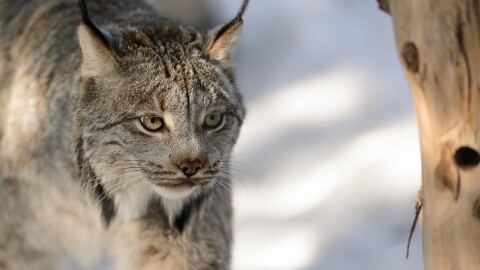A federal judge in Bangor has thrown out a lawsuit claiming that state and federal wildlife officials were failing to protect the threatened Canada Lynx as required by the Endangered Species Act.
Canada Lynx are abundant north of the border, but fewer than 1,000 are estimated to survive in Maine. Over the last several years state and federal wildlife regulators have set and adjusted new rules that permit a limited number of lynx to be accidentally killed or injured in traps set for other animals, such as fox or bobcats.
Animal rights groups charge that regulators ignored scientific evidence from their own biologists that Maine’s lynx population would be imperiled by permitting that “incidental take,” as it’s called. But on Wednesday, U.S. District Court Judge Jon Levy ruled that the regulators’ decision was sound.
“I think the courts are right on this one and the precedent’s going to be important going forward,” says David Trahan, executive director of the Sportsman’s Alliance of Maine. “The ESA is an important, I guess, protection for wildlife. But when it’s used as a bludgeoning tool for political purposes, then it undermines the entire program.”
Animal rights groups agree that the ruling could be precedent-setting, encouraging what they consider lax trapping rules in other states.
Daryl DeJoy of the Wildlife Alliance of Maine says that as written, the rules could encourage trappers to conceal an inadvertent trapping of a lynx by shooting the animal and depositing the carcass elsewhere, so it won’t be counted toward the limit on incidental takes.
“Or as they like to refer to it, ‘shoot, shovel and shut up.’ That could just be declared an illegal shooting of a lynx,” he says.
DeJoy says the rule’s opponents have yet to decide whether to appeal.



